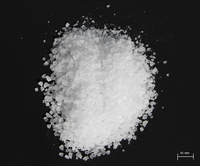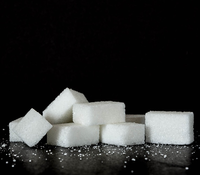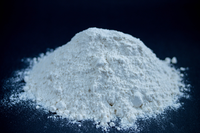Difference between revisions of "Solubility"
(Created page with "==Key Stage 2== ===Meaning=== Solubility is how easy it is to dissolve a solid in a liquid. ===About Solubility=== : If it is very easy to dissolve something...") |
(→Meaning) |
||
| (7 intermediate revisions by 2 users not shown) | |||
| Line 8: | Line 8: | ||
===Examples=== | ===Examples=== | ||
| − | Sugar | + | {| class="wikitable" |
| − | Salt | + | |+ Soluble Materials |
| − | Sand | + | |- |
| − | Flour | + | | style="height:20px; width:200px; text-align:center;" |Salt |
| + | | style="height:20px; width:200px; text-align:center;" |Sugar | ||
| + | |- | ||
| + | |[[File:Salt.png|center|200px]] | ||
| + | |[[File:Sugar.png|center|200px]] | ||
| + | |} | ||
| + | |||
| + | {| class="wikitable" | ||
| + | |+ Insoluble Materials | ||
| + | |- | ||
| + | | style="height:20px; width:200px; text-align:center;" |Sand | ||
| + | | style="height:20px; width:200px; text-align:center;" |Flour | ||
| + | |- | ||
| + | |[[File:Sand.png|center|200px]] | ||
| + | |[[File:Flour.png|center|200px]] | ||
| + | |} | ||
| + | |||
| + | ==Key Stage 3== | ||
| + | ===Meaning=== | ||
| + | [[Solubility]] is the maximum mass of [[solute]] that can [[dissolve]] in a given [[mass]] of [[water]]. | ||
| + | |||
| + | ===About Solubility=== | ||
| + | : If a large mass of [[solute]] is able to [[dissolve]] in a given [[mass]] of [[water]] it is referred to as '''soluble'''. | ||
| + | : If only a small [[mass]] of [[solute]] is able to [[dissolve]] in a given [[mass]] of [[water]] it is referred to as '''insoluble'''. | ||
| + | |||
| + | ===References=== | ||
| + | ====Edexcel==== | ||
| + | |||
| + | :[https://www.amazon.co.uk/gp/product/1292120215/ref=as_li_tl?ie=UTF8&camp=1634&creative=6738&creativeASIN=1292120215&linkCode=as2&tag=nrjc-21&linkId=8f96ddb76196848bafdb124354e4cf77 ''Solubility, pages 68-69, GCSE Chemistry, Pearson, Edexcel ''] | ||
| + | |||
| + | ====OCR==== | ||
| + | :[https://www.amazon.co.uk/gp/product/0198359829/ref=as_li_tl?ie=UTF8&camp=1634&creative=6738&creativeASIN=0198359829&linkCode=as2&tag=nrjc-21&linkId=90e8d7b4f039d53035238fa0320fe00b ''Solubility, page 43, 116, 276, Gateway GCSE Chemistry, Oxford, OCR ''] | ||
Latest revision as of 13:15, 23 February 2022
Contents
Key Stage 2
Meaning
Solubility is how easy it is to dissolve a solid in a liquid.
About Solubility
- If it is very easy to dissolve something then it is called soluble.
- If it is very difficult to dissolve something it is called insoluble.
Examples
| Salt | Sugar |
| Sand | Flour |
Key Stage 3
Meaning
Solubility is the maximum mass of solute that can dissolve in a given mass of water.
About Solubility
- If a large mass of solute is able to dissolve in a given mass of water it is referred to as soluble.
- If only a small mass of solute is able to dissolve in a given mass of water it is referred to as insoluble.



